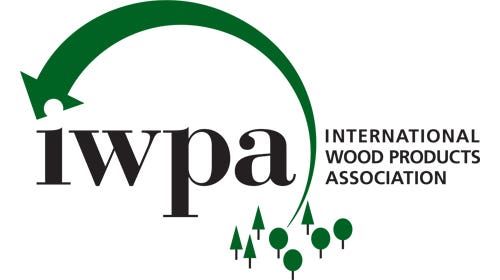Rosewood sales steady despite recent restrictions
Last fall, the Convention of International Trade of Endangered Species of Flora and Fauna (CITES) listed all Dalbergia rosewood species — except for Dalbergia nigra (Brazilian rosewood) — under Appendix…
Last fall, the Convention of International Trade of Endangered Species of Flora and Fauna (CITES) listed all Dalbergia rosewood species — except for Dalbergia nigra (Brazilian rosewood) — under Appendix II protection. The listing requires appropriate documentation at ports of entry and exit.
As a result, the future of the U.S. rosewood market carries a bit of uncertainty, according to hardwood dealers interviewed by Woodshop News. But for the time being, it’s mostly business as usual.
Rory Wood of Rare Woods U.S.A. in Mexico, Maine, says rosewood sales have held steady. “So far, no problems, but we have a 30-ton shipment due from Tanzania soon. We have asked our supplier to supply the required CITES documentation, but the African countries are way behind in matters of this nature and the Custom and Boarder Patrol authorities of the U.S. government are super vigilant, so we are wishing for luck with that,” he says.
Three bubinga species — Guibourtia demeusei, Guibourtia pellegriniana and Guibourtia tessmannii — as well as kosso or African rosewood (Pterocarpus erinaceus) were also listed in Appendix II. Brazilian rosewood is listed under Appendix I as a species threatened with extinction.
Fabs Corte of Cormark International, a hardwood importer in Weaverville, S.C., says the new regulation cause delays as compliance issues are sorted out.
“We’re sticklers about the paperwork and we’re putting a lot of pressure on our suppliers to make sure that there are no surprises on our end. And, in doing that, it does cause delays,” Corte says.
“As for the outlook, I don’t really know at this time because these are sweeping changes across the entire Dalbergia species. They’ve put everything on Appendix II. If it was one species, we could just switch to an alternative. But when they’ve got all of the species lumped together like this, there are obviously a lot of questions and a lot of uncertainty, and I don’t know in the long term if these species will be economically viable to us and to our suppliers. That’s just speaking for us,” Corte adds.
Kevin Klasmeier of Exotic Lumber in Annapolis, Md., sells Bolivian, East Indian, Honduras and African rosewoods, as well as cocobolo, and has not yet been affected.
“Everyone keeps telling me it’s going up on the CITES list and I’m not going to be able to get this or that, but I can get rosewood all day long. I really don’t know what’s going on with it. I don’t want to say something I don’t know anything about. I have rosewood here, Honduras types, and I can get it still,” Klasmeier says.
This article originally appeared in the March 2017 issue.






